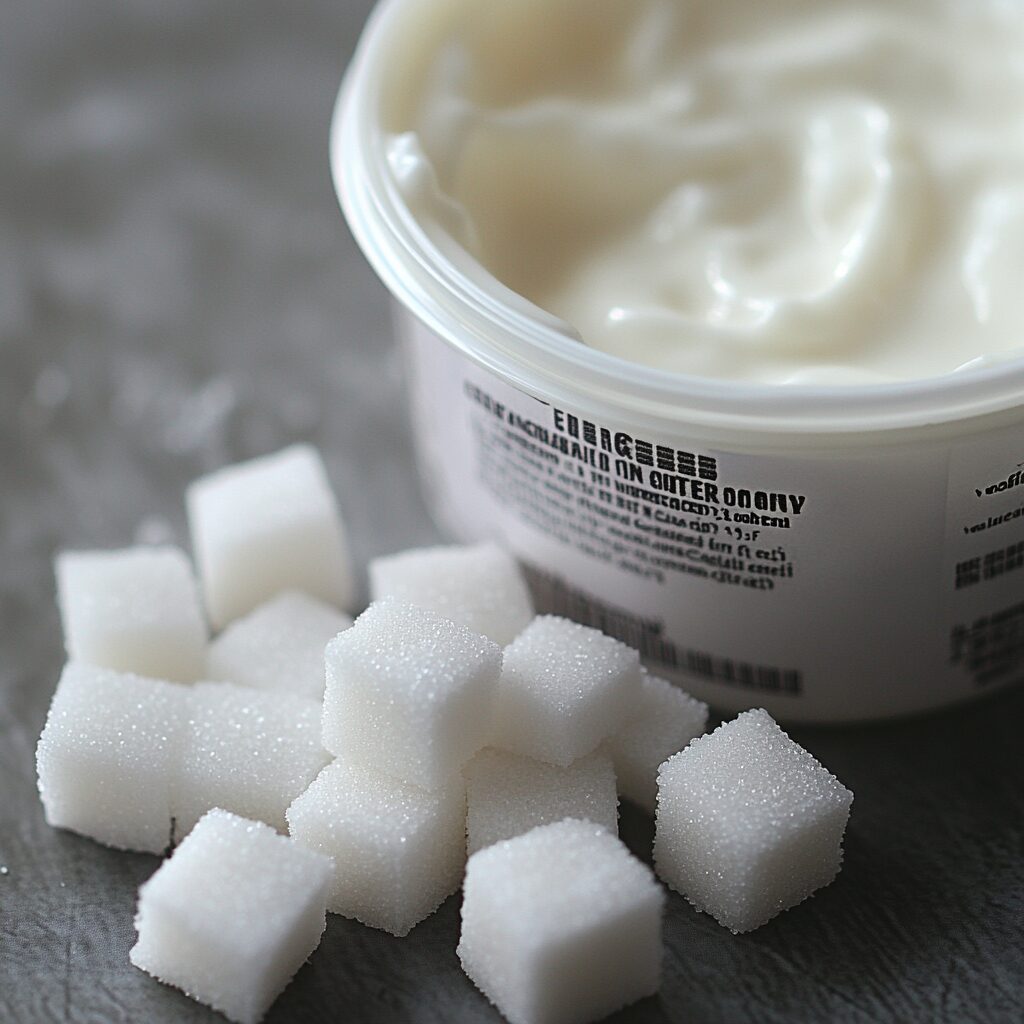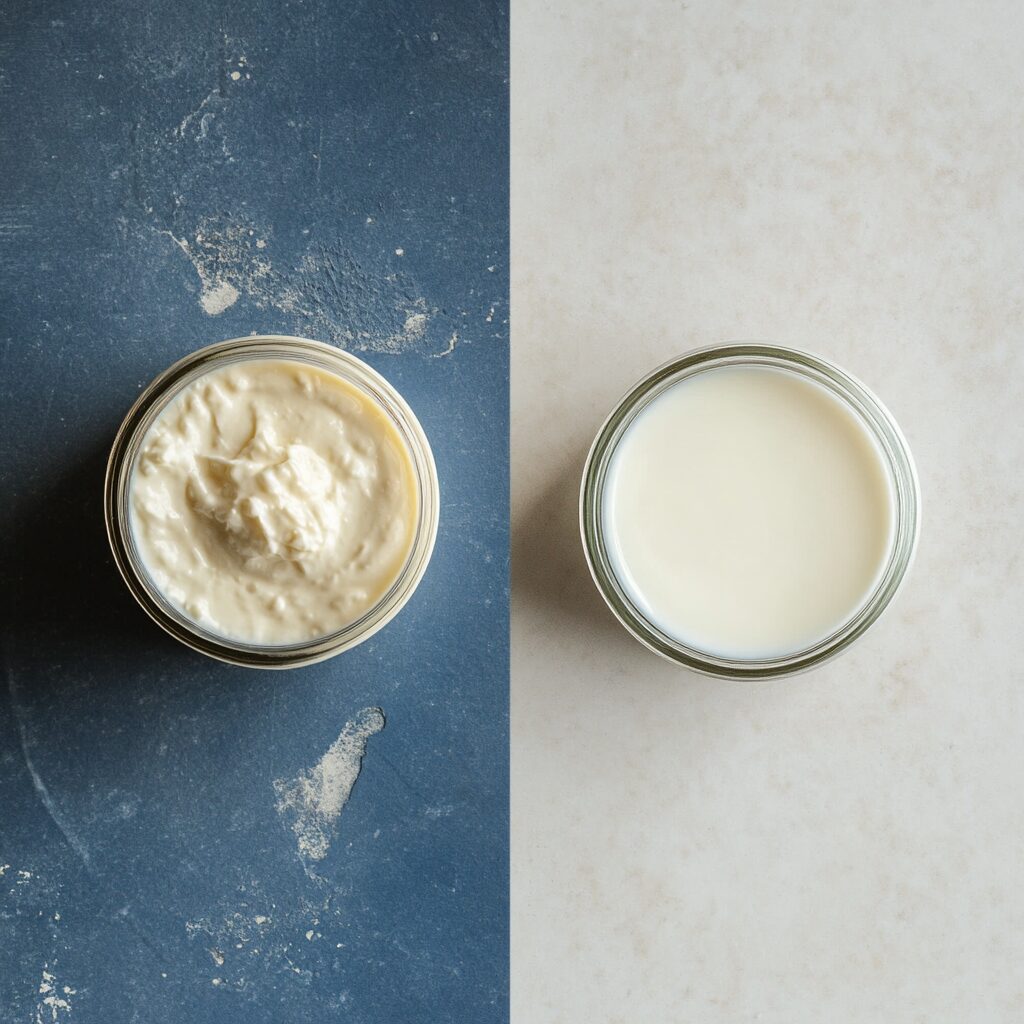You might think you’re making a healthy choice by reaching for that container of yogurt in the dairy aisle. But what if that supposedly nutritious snack was actually working against your health goals? The truth is, not all yogurts are created equal, and some popular brands might be doing more harm than good. Today, we’re going to take a closer look at why you might want to think twice before grabbing that familiar yogurt brand off the shelf.
Sugar overload: when yogurt becomes dessert

One of the biggest culprits in unhealthy yogurt is added sugar. While yogurt naturally contains some sugar in the form of lactose, many brands go overboard with additional sweeteners. The American Heart Association recommends limiting daily added sugar intake to less than 25 grams for women and 36 grams for men. Yet some yogurt brands pack a whopping 29 grams of sugar in a single serving!
Take Yoplait, for example. Their French Vanilla flavor contains 20 grams of total sugar, with 14 grams coming from added sugars. That’s more than half of the recommended daily limit in just one small container. And it’s not alone – brands like Noosa, Greek Gods, and La Yogurt all have varieties that exceed 20 grams of sugar per serving.
Why does this matter? Excessive sugar consumption has been linked to a host of health issues, including obesity, type 2 diabetes, and heart disease. By choosing these sugar-laden yogurts, you might unknowingly be sabotaging your health goals.
Artificial additives: the hidden ingredients you didn’t ask for
Sugar isn’t the only concern when it comes to unhealthy yogurt brands. Many popular varieties are loaded with artificial additives that you might not even realize are there. These additives are used to improve texture, extend shelf life, or enhance flavor – but at what cost to your health?
Great Value yogurt, Walmart’s store brand, is a prime example. It contains additives like carrageenan, modified food starch, and sodium citrate. While these ingredients may sound harmless, some studies have linked carrageenan to digestive issues and inflammation.
Dannon, another household name, isn’t off the hook either. Both their flavored and plain varieties contain various additives, including modified food starch, artificial flavors, and potassium sorbate. These ingredients are far from the simple, wholesome yogurt you might be expecting.
The protein problem: when more isn’t always better

In recent years, high-protein yogurts have gained popularity among health-conscious consumers. But before you jump on the protein bandwagon, it’s worth taking a closer look at how these products achieve their protein boost.
Oikos yogurt, for instance, boasts high protein content but at a cost. The regular varieties contain more than the recommended 10 grams of sugar per serving and use additives like whey protein concentrate and tapioca starch. While protein is indeed important for our diets, it’s crucial to consider the overall nutritional profile of the yogurt.
What if, instead of relying on artificially protein-enriched yogurts, we focused on naturally protein-rich options? Greek yogurt, when made traditionally, offers a high protein content without the need for additives. Brands like Fage provide both plain and flavored varieties that are high in protein and contain minimal additives.
The organic illusion: when “organic” doesn’t mean healthy
You might think reaching for an organic yogurt brand is a surefire way to avoid unhealthy options. But the reality isn’t quite so simple. While organic yogurts do offer benefits in terms of avoiding pesticides and synthetic hormones, they’re not automatically healthier when it comes to sugar content or additives.
Some organic brands still add significant amounts of sugar to their products. For example, Stonyfield Organic, while offering high-quality plain yogurt, also has flavored varieties with relatively high sugar content. The key is to always check the label, even when you see the organic certification.
What’s more, even organic yogurts can vary significantly in quality. Some may use artificial thickeners like pectin or tapioca starch to mimic the texture of real yogurt. While these additives are allowed in organic products, they’re not necessarily what you’d expect in a truly natural yogurt.
The fermentation fallacy: when yogurt isn’t really yogurt

One of the key health benefits of yogurt comes from its probiotic content, which is a result of the fermentation process. However, not all yogurts are fermented equally. Many commercial brands cut corners by fermenting their yogurt for only a short time, resulting in a product that’s closer to flavored milk than true yogurt.
Properly fermented yogurt should be cultured for about 24 hours. This extended fermentation time allows the beneficial bacteria to consume most of the lactose, resulting in a tangy, probiotic-rich product. However, many popular brands ferment for much shorter periods, leaving high levels of lactose and fewer probiotics.
What if we’ve been missing out on the true benefits of yogurt all along? Brands like White Mountain and Seven Stars offer Bulgarian-style yogurt, fermented for a full 24 hours. The result is a product with extremely low lactose levels and maximum probiotic content – closer to what yogurt was meant to be.
The marketing maze: navigating health claims and packaging
In the world of yogurt, marketing can be particularly misleading. Bright packaging, health claims, and catchy slogans can draw our attention away from what really matters – the ingredients list and nutrition facts.
Take Yoplait’s Go-GURT, for instance. Marketed as a fun, convenient option for kids, it contains a staggering 23 grams of total sugar per serving, with 18 grams of that being added sugar. Similarly, Danimals drinkable yogurt, another kid-targeted product, packs about 11 grams of sugar per serving.
Even products marketed as healthier options can be deceptive. YoCrunch yogurt, which comes with toppings like M&M’s, provides only 3 grams of protein in the yogurt itself, with additional sugar and additives from the candy toppings. It’s a far cry from the nutritious snack it might appear to be at first glance.
The alternative approach: choosing healthier yogurt options
So, with all these pitfalls, how can you choose a truly healthy yogurt? The key is to look for brands that prioritize simplicity and quality ingredients. Opt for plain Greek yogurt and add your own fresh fruits for flavor. Brands like Fage and Chobani offer plain varieties with minimal ingredients – just cultured milk and live active cultures.
If you prefer non-dairy options, be equally vigilant. Many plant-based yogurts are loaded with additives and sugars. Look for brands that use simple ingredients and rely on natural thickeners like coconut cream rather than artificial additives.
Remember, the healthiest yogurt might not always be the most convenient or the best-tasting at first. But by choosing wisely and perhaps adding your own natural flavorings, you can enjoy the true health benefits of this ancient food without the modern pitfalls.
In the end, the yogurt aisle doesn’t have to be a minefield. By arming yourself with knowledge and reading labels carefully, you can sidestep the unhealthy options and choose yogurts that truly nourish your body. Your taste buds might need some time to adjust to less sugar, but your body will thank you in the long run. So next time you’re reaching for that familiar yogurt brand, pause and consider – is this really the healthiest choice you can make?

